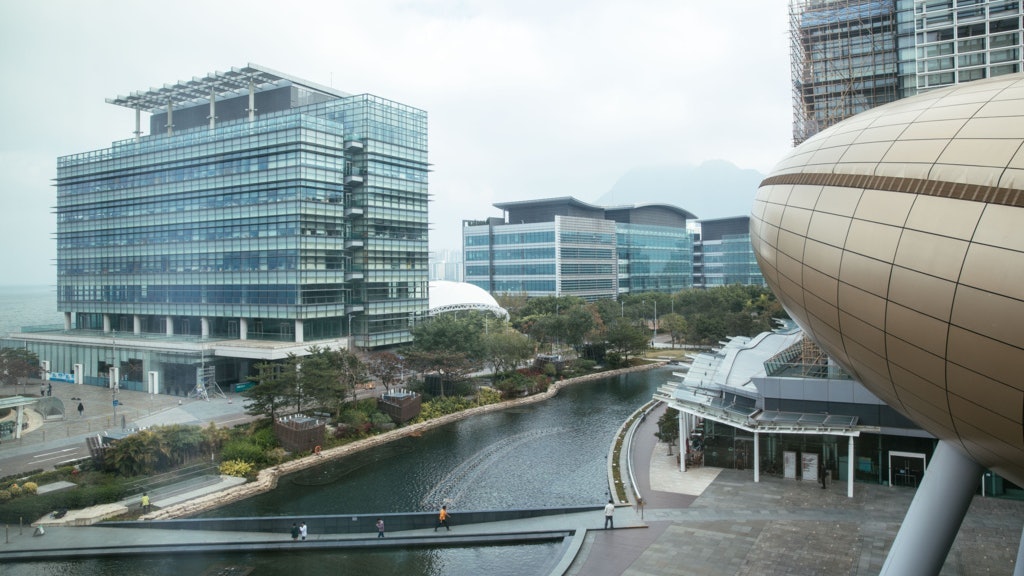Social News
Written by: Hu Jiaxin
2020-06-30 17:48
Last update date: 2020-06-30 17:51When the National People's Congress Standing Committee formally passed the formulation of the "National Security Act of the Port Area" today, the United States announced the cancellation of Hong Kong's special treatment status and at the same time stopped exporting regulated defense equipment to Hong Kong; military-civilian related technologies will require a license to apply Export to Hong Kong. Huang Jinhui, the dean of the School of Engineering, CUHK, said that he is temporarily cautious and optimistic about the measures. It is expected that the relevant research on the introduction of cutting-edge instruments, supercomputers, and 5G technologies for wafer production in Hong Kong will be affected in the short term, but it can still be transferred to Europe and the Mainland. Wait for imported instruments to take over. Wei Bingjiang, executive and vice-president of PolyU, believes that the new measures of the United States are less powerful than expected, and that there is no complete ban on the sale of related research equipment. I believe that leaving a "walking space" will have a limited impact on the academic community.
Wei Bingjiang, executive and vice president of PolyU, believes that the new measures of the US side are lighter than expected and have limited impact on academia. (Profile picture)
American universities in Hong Kong have not stopped cooperation projects
U.S. Secretary of State Pompeo announced on Monday that he would stop exporting controlled defense equipment to Hong Kong from now on; relevant technologies for both military and civilian use will require a license to be exported to Hong Kong.
Wei Bingjiang, executive and vice president of PolyU, and Huang Jinhui, dean of CUHK’s School of Engineering, both believe that under the Sino-US trade war in recent years, well-known universities such as the Massachusetts Institute of Technology (MIT) have strengthened the approval of Sino-US cooperative research, but the actual Hong Kong's scientific research cooperation has little effect, because the cooperation between colleges and universities for many years, the local confidence in the professionalism of Hong Kong's scientific research personnel. So far, neither of them has heard of the academic exchange and scientific research cooperation projects between the two sides, which has stopped due to the tension between China and the United States.
Wei Bingjiang pointed out that Hong Kong has never engaged in military-related research, so the United States ban on the export of defense equipment has no impact on academic research. Regarding the restrictions imposed by the US on the export of military-civilian-related technologies, Wei believes that the relevant measures have not touched on high-end technologies, but are directed at military-civilian-related technologies, such as radar and signal transmitters. The research equipment involved has a narrower coverage than expected. And substitutes can be found, which have a low impact; the restriction imposed is to apply for a license rather than a total ban. It is believed that there is a "walking space" for the academic community. However, he believes that this year is the election year in the United States, the White House's increasingly tough stance toward China, and still waiting for the US to take the next step.
Huang Jinhui, Dean of the School of Engineering, CUHK believes that he is temporarily cautious and optimistic about the new U.S. measures. It is expected that the measures will have an impact on the introduction of cutting-edge devices, supercomputers, and 5G technologies for chip production in Hong Kong in the short term. Instrument replacement was introduced in other regions. (Profile picture)
Dean of the School of Engineering, CUHK: Research equipment can be introduced from Europe and the Mainland
Huang Jinhui said that for the time being, he is cautious and optimistic about the new measures. He still has to wait and see the details of the implementation. However, it is expected that the introduction of cutting-edge instruments, supercomputers, 5G technology and other related research in Hong Kong will be affected in the short term. For example, in the past, universities have tried cooperation projects on scientific research, obtained funding from the UGC, and introduced supercomputers in the United States. If the worst plan is, the United States prohibits exports to Hong Kong. "More powerful supercomputers may not have arrived. "
However, he believes that the above research equipment is not without substitutes, for example, it can be imported from Europe and the Mainland. Huang Jinhui continued that in the past five to ten years, the market for technological demand has shifted to the mainland and Southeast Asia. For example, the mainland has launched 6G technology research and development, and there is considerable room for development. It is expected that the long-term impact on Hong Kong's scientific research development may not be too great.
Hong Kong version of National Security Law|Trump cancels special treatment in Hong Kong
National Security Law | The United States Stops Exporting Military and Civilian Equipment to Hong Kong
U.S. arrests a Chinese researcher for spying on Beijing
Hong Kong version of the National Security Law University governance science research












